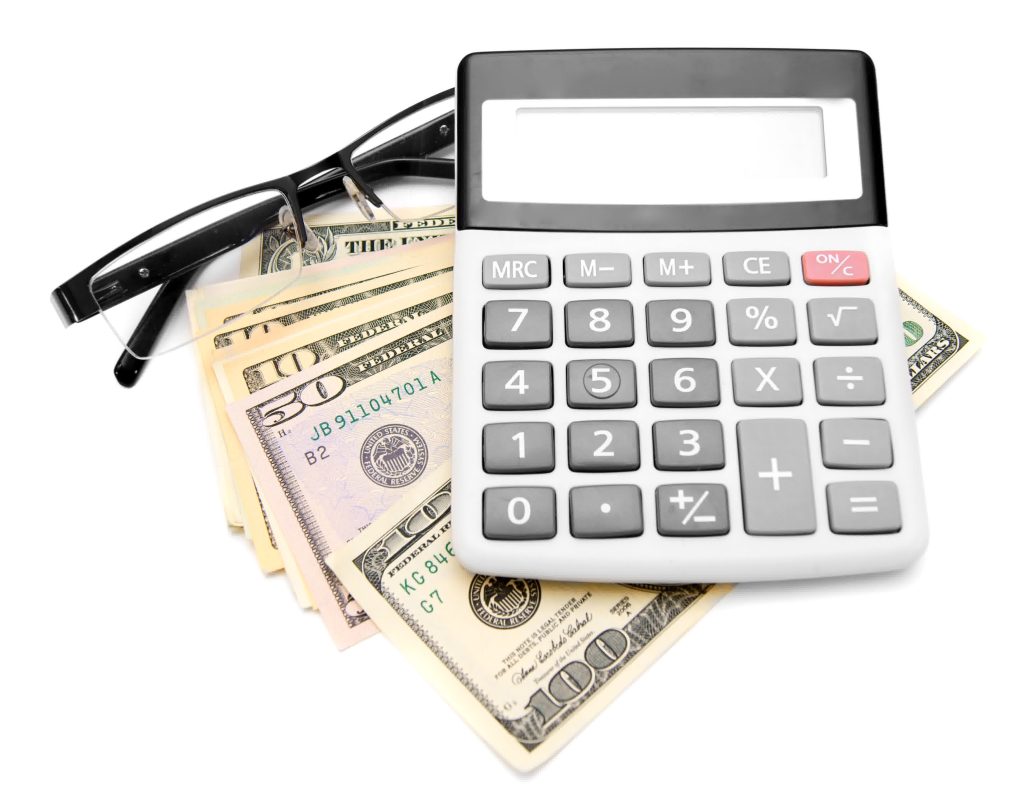Building Financial Stability on a Tight Budget

The Importance of Budgeting on a Low Income
Saving money is important for everyone, but it can be especially challenging for those living on a low income. If you’re struggling to make ends meet, every extra dollar counts. Luckily, there are a few strategies you can use to save money and build financial stability, even if you don’t have a lot of cash to spare.
First things first, let’s define “low income.” For the purpose of this article, we’ll say that a low income is any amount of money that makes it difficult to cover all of your essential expenses, like rent, utilities, and groceries. If you’re living on a low income, you might feel like you’re constantly stretched thin and that there’s no way to save any money. But don’t despair – there are ways to save money and build financial stability, even if you’re not bringing in a lot of cash.
One of the first steps in saving money on a low income is creating a budget. A budget is a plan that helps you understand how much money you have coming in (your income) and how much you’re spending (your expenses). By creating a budget, you can see exactly where your money is going and identify areas where you can cut back. There are a few different ways you can create a budget, like using a spreadsheet or a budgeting app. No matter which method you choose, it’s important to be as accurate as possible when tracking your income and expenses.
So why is creating a budget so important? For one thing, it can help you avoid overspending. If you have a clear idea of how much money you have available and what you need to spend it on, you’re less likely to overspend on non-essential items. A budget can also help you identify areas where you might be able to cut back, like canceling subscriptions or memberships that you don’t use regularly. By trimming the fat from your budget, you can free up more money to put towards savings.
Finally, a budget can be a great motivator. Seeing your savings grow can be a huge incentive to stick to your budget and continue saving money. Plus, having a budget can give you a sense of control over your finances, which can be especially helpful if you’re living on a low income.
So don’t be intimidated – creating a budget is a crucial step towards saving money and building financial stability. With a little bit of effort and discipline, you can take control of your finances and start saving for the future.

Prioritizing Your Spending: Essential vs. Non-Essential Expenses
Once you’ve created a budget, the next step in saving money on a low income is to prioritize your spending. This means figuring out what expenses are essential (like rent, utilities, and groceries) and what expenses are non-essential (like dining out or entertainment). By focusing on your essential expenses, you can make sure you have enough money to cover the things you need to survive.
Of course, it’s important to have some fun and enjoy yourself, too. But if you’re trying to save money on a low income, it’s a good idea to be mindful of your non-essential expenses. Here are a few ways to reduce your non-essential expenses:
- Look for free or low-cost entertainment options: Instead of going out to a movie or concert, try finding free or low-cost activities, like going for a hike or checking out a local museum.
- Cut down on dining out: Cooking at home is usually cheaper than eating out, so try to cook more meals at home. When you do eat out, look for deals and discounts, like kids-eat-free nights or happy hour specials.
- Cancel subscriptions or memberships you don’t use: If you’re paying for a gym membership or streaming service that you don’t use regularly, consider canceling it.
By cutting back on non-essential expenses, you can free up more money to put towards your essential expenses or save for the future. It might take some effort to find ways to reduce your non-essential expenses, but it’s worth it if it helps you save money.
Remember, saving money on a low income is all about finding the right balance. It’s important to have some fun and enjoy yourself, but it’s also important to be mindful of your spending and focus on your essential expenses. With a little bit of planning and discipline, you can save money and build financial stability.

Increasing Your Income: Part-Time Work, Raises, and Side Hustles
In addition to creating a budget and prioritizing your spending, another strategy for saving money on a low income is to increase your income. If you’re living on a low income, you might feel like there’s no way to earn more money. But there are actually plenty of ways to boost your income, even if you don’t have a lot of time or resources. Here are a few ideas:
- Take on additional part-time work: If you have some free time and are willing to put in a little extra effort, you might be able to find a part-time job or gig that will help you earn more money.
- Negotiate a raise at your current job: If you’re happy in your current job and feel like you’re doing a good job, it might be worth talking to your boss about getting a raise. Don’t be afraid to negotiate – it’s always worth a shot!
- Start a side hustle: If you have a skill or hobby that you could turn into a business, consider starting a side hustle. There are plenty of opportunities to earn money on the side, whether it’s freelance writing, pet sitting, or selling handmade crafts on Etsy.
Increasing your income might take some effort, but it can be a great way to save money on a low income. Even if you’re only able to earn a little extra money, every dollar counts when you’re trying to build financial stability.
Of course, it’s important to be realistic about your goals and your available time and resources. Don’t take on more than you can handle, and make sure you’re still able to focus on your essential expenses and overall financial health. But with a little bit of effort and creativity, you can find ways to boost your income and save money on a low income.

Finding the Best Deals: Sales, Coupons, and Price Comparisons
Another way to save money on a low income is to shop around for the best deals. This means looking for sales and discounts, using coupons, and comparing prices at different stores or online. By doing your homework and shopping around, you can often find better prices on the things you need.
Here are a few tips for shopping around and finding the best deals:
- Look for sales and discounts: Many stores offer sales or discounts on certain days of the week or at certain times of the year. Keep an eye out for these promotions and try to time your purchases accordingly.
- Use coupons: Coupons can be a great way to save money, especially if you’re buying non-essential items. Look for coupons in your mail, online, or in the Sunday newspaper.
- Compare prices at different stores: Don’t just assume that the first price you see is the best one. Take some time to compare prices at different stores or online retailers to make sure you’re getting the best deal.
- Shop online: Online retailers often offer lower prices than brick-and-mortar stores, and you might be able to find even better deals if you’re willing to shop around. Just be sure to factor in shipping costs when comparing prices.
By shopping around and looking for the best deals, you can save a lot of money on a low income. It might take a little bit of extra effort, but it’s worth it if it helps you save money and build financial stability.
Remember, saving money on a low income is all about being smart with your spending. By shopping around and looking for the best deals, you can stretch your budget further and save money for the things that matter most.

Cutting Unnecessary Expenses: Subscriptions, Non-Essentials, and Alternatives
In addition to shopping around for the best deals, another strategy for saving money on a low income is to cut unnecessary expenses. This means looking for ways to eliminate expenses that you don’t really need or use. By cutting unnecessary expenses, you can free up more money to put towards your essential expenses or save for the future.
Here are a few ways to cut unnecessary expenses:
- Cancel subscriptions or memberships you don’t use: If you’re paying for a gym membership or streaming service that you don’t use regularly, consider canceling it.
- Switch to a cheaper cell phone plan or internet service: If you’re paying more for your cell phone or internet service than you need to, consider switching to a cheaper plan.
- Cut back on non-essential expenses: Look for ways to reduce your spending on non-essential items, like dining out or entertainment.
- Look for cheaper alternatives: Instead of buying something new, consider looking for a used version or a cheaper alternative.
By cutting unnecessary expenses, you can save a lot of money on a low income. It might take some effort to identify and eliminate these expenses, but the long-term benefits of financial stability are well worth it.
Remember, saving money on a low income is all about being smart with your spending. By cutting unnecessary expenses, you can free up more money to put towards your essential expenses or save for the future. With a little bit of planning and discipline, you can take control of your finances and build a secure financial future.

Using Cash Instead of Credit: Benefits and Tips
Another way to save money on a low income is to use cash instead of credit. While credit cards can be convenient, they can also be a temptation to overspend. By using cash instead of credit, you can help yourself stay within your budget and avoid overspending.
Here are a few tips for using cash instead of credit:
- Take out cash for your budgeted expenses: Instead of using your credit card for everything, take out cash for the expenses you’ve budgeted for. This will help you stay within your budget and avoid overspending.
- Use cash for non-essential expenses: If you’re trying to cut back on non-essential expenses, try using cash instead of credit. This will help you stick to your budget and avoid overspending.
- Use cash for larger purchases: If you’re considering making a larger purchase, like a new appliance or furniture, try using cash instead of credit. This will help you avoid getting into debt and will make it easier to save money on a low income.
By using cash instead of credit, you can save money on a low income and build financial stability. It might take some effort to get used to using cash, but the long-term benefits are worth it.
Remember, saving money on a low income is all about being smart with your spending. By using cash instead of credit, you can help yourself stay within your budget and avoid overspending. With a little bit of planning and discipline, you can take control of your finances and build a secure financial future.

Setting Up Automatic Payments: Bills, Savings, and Overdraft Protection
Finally, another way to save money on a low income is to set up automatic payments for bills and savings. Automatic payments can help you save money in a few different ways:
- Pay your bills on time: By setting up automatic payments for your bills, you can ensure that you pay them on time and avoid late fees.
- Save money consistently: If you have a hard time remembering to save money, automatic payments can help. By setting up automatic payments for your savings, you can ensure that you’re consistently putting money aside for the future.
- Avoid overdraft fees: If you have a hard time keeping track of your bank account balance, automatic payments can help you avoid overdraft fees.
Here are a few tips for setting up automatic payments:
- Make a list of your bills and savings goals: Start by making a list of all of the bills and expenses you need to pay each month, as well as your savings goals.
- Choose an account for automatic payments: Decide which account you want to use for automatic payments – it could be a checking account, savings account, or a combination of both.
- Set up automatic payments: Once you’ve decided which account to use, set up automatic payments for your bills and savings. You can usually do this through your bank’s online banking platform or by contacting your creditor or financial institution.
By setting up automatic payments, you can save money on a low income and build financial stability. It might take some effort to get everything set up, but the long-term benefits are worth it.
Remember, saving money on a low income is all about being consistent and disciplined. By setting up automatic payments, you can ensure that you’re paying your bills on time, saving money consistently, and avoiding overdraft fees. With a little bit of planning and effort, you can take control of your finances and build a secure financial future.

Conclusion: Achieving Financial Stability on a Low Income
In conclusion, saving money on a low income requires some effort and discipline, but it is possible with the right strategies. By creating a budget, prioritizing your spending, looking for ways to increase your income, shopping around for the best deals, cutting unnecessary expenses, using cash instead of credit, and setting up automatic payments, you can save money and build financial stability. It may take some time and effort to develop these habits, but the long-term benefits of financial security and stability are well worth it.
Remember, saving money on a low income is all about finding the right balance. It’s important to have some fun and enjoy yourself, but it’s also important to be mindful of your spending and focus on your essential expenses. With a little bit of planning and dedication, you can take control of your finances and achieve your financial goals.
Don’t get discouraged if you don’t see results right away – building financial stability takes time and effort. But with a little bit of patience and discipline, you can save money and build a secure financial future, even on a low income. So don’t be afraid to start saving money and building financial stability – every little bit counts, and the benefits are well worth it. So, these are some strategies for saving money on a low income that you can use

Saving on Essential Expenses: Groceries, Rent, and Utilities
One last strategy for saving money on a low income is to look for ways to save on your essential expenses. While it’s important to prioritize your essential expenses and make sure you have enough money to cover them, there are still ways you can save money on these expenses. Here are a few ideas:
- Shop around for the best prices on groceries: Groceries are an essential expense, but that doesn’t mean you have to pay top dollar for them. Look for sales, use coupons, and compare prices at different stores to find the best deals on your groceries.
- Negotiate your rent or utilities: If you’re paying more than you can afford for your rent or utilities, it might be worth negotiating with your landlord or service provider to try and get a lower rate.
- Find a cheaper place to live: If you’re paying more than you can afford for your current place, it might be worth considering moving to a cheaper location. This might not be an option for everyone, but it’s worth considering if you’re struggling to make ends meet.
By looking for ways to save on your essential expenses, you can stretch your budget further and save money on a low income. It might take some effort to find ways to save on these expenses, but the long-term benefits of financial stability are well worth it.
Remember, saving money on a low income is all about being smart with your spending. By looking for ways to save on your essential expenses, you can stretch your budget further and save money for the things that matter most. With a little bit of effort and discipline, you can take control of your finances and build a secure financial future.

